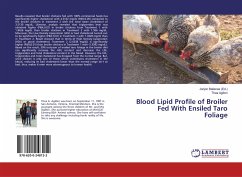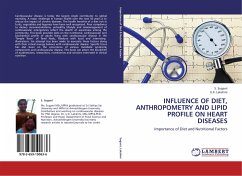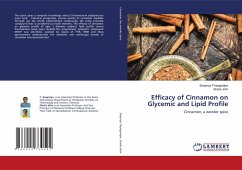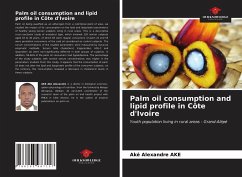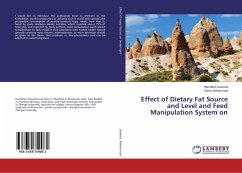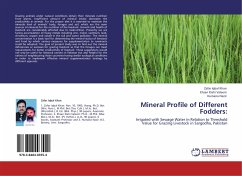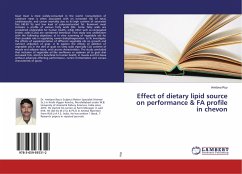
Effect of dietary lipid source on performance & FA profile in chevon
Versandkostenfrei!
Versandfertig in 6-10 Tagen
37,99 €
inkl. MwSt.

PAYBACK Punkte
19 °P sammeln!
Goat meat is most widely-consumed in the world. Consumption of ruminant meat is often associated with an increased risk of total, cardiovascular, and cancer mortality due to its high content of saturated fats (40-50 %) and low level of polyunsaturated fat. Ruminant meat contains a profile of various fatty acids (FA). Some fatty acids are considered undesirable for human health, while other such as conjugated linoleic acids (CLAs) are considered beneficial. That study was undertaken with the following objectives: a) In vitro screening of vegetable oils for their possible role in regulating rume...
Goat meat is most widely-consumed in the world. Consumption of ruminant meat is often associated with an increased risk of total, cardiovascular, and cancer mortality due to its high content of saturated fats (40-50 %) and low level of polyunsaturated fat. Ruminant meat contains a profile of various fatty acids (FA). Some fatty acids are considered undesirable for human health, while other such as conjugated linoleic acids (CLAs) are considered beneficial. That study was undertaken with the following objectives: a) In vitro screening of vegetable oils for their possible role in regulating rumen biohydrogenation. b) To investigate the effects of supplementation of different vegetable oils on growth and nutrient utilization of goat. c) To explore the effects of addition of vegetable oils in the diet of goat on fatty acids especially CLA content of muscle and adipose tissue, and carcass characteristics. The study concluded that inclusion of vegetable oil like sunflower or soybean oil to goat diet increased CLA, which is beneficial to human health, in muscle and fat tissue without adversely affecting performance, rumen fermentation and carcass characteristic of goats.



